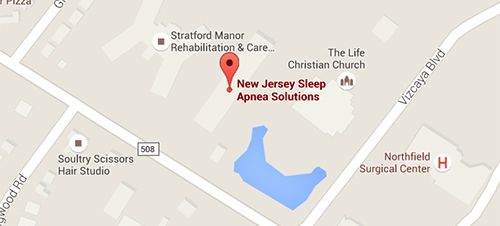The Most Common Signs of Sleep Deprivation
Submitted by New Jersey Snoring Solutions on Tue 10/27/2015 - 09:00

Whether you’ve stayed up late every so often to finish up a work project or you have recurrent problems sleeping because of sleep apnea or another condition causing insomnia, you may be in sleep debt. To find out if you are displaying the more serious signs of sleep deprivation, read on.
You’re Hungry More Often
Are you reaching for snacks more often during the day? It may be because your body is pumping out more ghrelin, called the “hunger hormone,” due to your lack of sleep. Ghrelin makes you crave foods with a high fat and sugar content to make up for the energy your body is lacking from too little sleep. And since leptin (a hormone that tells your body to feel full) levels are also adversely affected by too little sleep, your hunger cravings will continue longer than normal. This side effect of sleep deprivation often causes weight gain.
You Can Fall Asleep Almost Instantly at Night
According to the FDA, it considered normal for adults to take between 10 and 20 minutes to fall asleep at night. If you find that you are able to fall asleep at night within a few minutes of your head hitting the pillow, and especially if you’re feeling drowsy for most of the day, then this is a good sign that you’re lacking sufficient sleep at night.
You Have Memory Problems
Getting too little sleep disrupts the brain’s cognitive ability, including memory. This is because adequate sleep aids the brain in storing memories, and sleep deprivation makes it harder for a person to absorb and recall new information. In addition to this, a study conducted by the National Institute of Neurological Disorders and Stroke (NINDS) found that sleep is also the period of time when the brain flushes out toxins. Getting an average of seven to nine hours of uninterrupted sleep at night is important to the long-term health of the brain.
You’re More Irritable
Another strong indication that you might be lacking sufficient shut-eye is irritability. Do you find yourself lashing out more often at your spouse or a co-worker? Do you find yourself engaging in road rage on a regular basis? Studies have found that sleep deprivation increases emotional reactivity caused by hormone shifts that occur as the body adjusts to too little sleep.
You Get Sick More Often
It is no surprise that chronic sleep loss weakens the immune system, lowering the body’s defenses against viruses, colds and infections. Proteins called cytokines are released during sleep; these proteins are used by the body to ward off infection and inflammation. The less a person sleeps, the less cytokines are produced by the body. Additionally, the level of antibodies and cells used to fight infection decreases with less sleep. Studies have also found that chronic insomnia increases a person’s risk of more serious diseases, including diabetes and heart disease.
Are You Suffering from Sleep Apnea?
Are you lacking sufficient sleep because you find yourself waking up repeatedly at night, unable to breathe? This is a common symptom of sleep apnea. If you suspect you are suffering from sleep apnea because of this or other symptoms, get an evaluation by calling Dr. Ivan Stein at New Jersey Sleep Apnea Solutions. To schedule an appointment with Dr. Stein, call (855) WHY-SNORE or (855) 949-7667.







